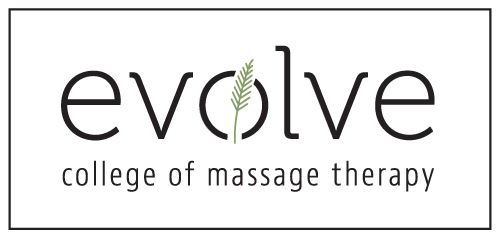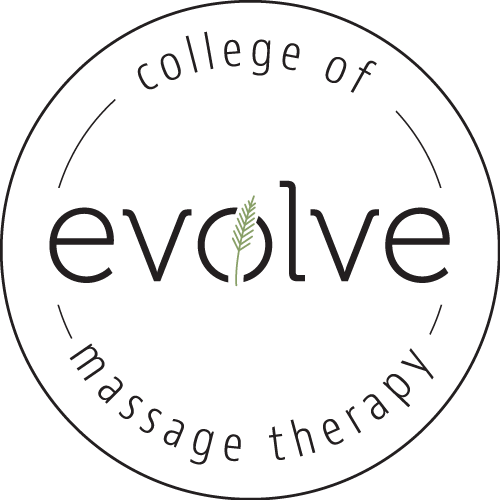- Medical Terminology
- Foundations of Massage
- Anatomy I/Lab
- Physiology/Lab
- Public Health
- Research
- Ethics
- Supervision
- Wellness
- Nutrition
- Pathology
- Sports Injury/Lab
- Anatomy II
- Clinic Prep/Clinic Rotation
- Thermo Therapy
- Practice Hours
MEDICAL TERMINOLOGY (30 hrs)
Courses such as Anatomy and Physiology cannot be fully understood or appreciated without a grounding in Medical Terminology. This course explores the origins of common medical and anatomical terms which enable students to communicate more professionally. This interactive class reviews all systems of the body and provides students with a solid foundation for other courses.
FOUNDATIONS OF MASSAGE I & II (135 hrs)
In this course, students explore the multidimensional aspects of massage therapy. The power of touch, expressed through hands-on techniques, is developed throughout this full-year course. The study of the scientific principles and artistic applications, refined over centuries, gives students a knowledge base that forms the heart of the ECMT program. Psychological and physiological components of massage are also examined through lecture and hands-on role playing.
ANATOMY I/LAB (111 hrs)
The Anatomy course focuses on the structure of the human musculoskeletal system. Areas of study include the entire body: joints (Arthrology), bones (Osteology), muscles (Myology) and the nervous system (Neurology). Utilizing video, palpation exercises and body mapping, students explore the complex relationships these areas have to one another. Anatomy I includes a supervised lab, allowing for additional hands-on application of anatomical theory and landmarking.
PHYSIOLOGY/LAB (89 hrs)
While Anatomy is the study of human structure, Physiology is the study of human function. In this course, students are introduced to the body on a cellular level. Tissues, organs and how these systems influence our ability to live and function will be examined under all kinds of conditions. How does my heart keep me alive? How do hormones affect my emotions? These questions and many more will be answered in this first semester course.
PUBLIC HEALTH (30 hrs)
This course introduces students to the concepts of wellness, health promotion, disease prevention and how these concepts relate to massage therapists. Students will gain an understanding of how specific communicable diseases are transferred and how massage therapists can help prevent or even eliminate the spread of certain diseases. Students also learn how massage therapists can work in conjunction with other healthcare professionals and how to accommodate populations with special needs.
RESEARCH (24 hrs)
In order for us to defend the efficacy of our techniques and protocols, it is imperative that our profession is able to comprehend, discern and produce quality research. The ability to critically analyze articles, case studies and research papers is a necessary skill that will allow us to better educate and communicate with our clients and other healthcare providers. This course will introduce you to the language of research and develop the skills necessary to conduct valid, defensible case studies.
ETHICS (27 hrs)
The Ethics course introduces students to ethical standards of practice in the field of massage therapy. Students focus on the development of personal awareness, empathy, compassion and interpersonal communication skills. Through lecture, group activities and role playing students explore many issues and situations commonly encountered in our profession. Areas covered are topical in today’s society: professional relationships, codes of conduct, boundaries and abuse issues. Within a supportive environment, this course challenges students to explore their values and belief systems in order to more effectively treat the diversity of today’s patients.
SUPERVISION (108 hrs)
Each semester ECMT offers numerous hands on technique courses and each of these courses are further supported by our Supervision class. ECMT supervisors are handpicked from graduated students who finished at or near the top of their class and are working therapists within the profession. Their role is to serve as a support system and mentors for the students along their journey through the program. Supervision sessions are all hands-on and include charting and objectives specific to each student and their learning curve.
NUTRITION (18 hrs)
The Nutrition course introduces students to the basic science of healthy and unhealthy eating habits. Students learn the relationship between nutrition and physical activity, disease prevention and optimum health. Students also examine popular diet approaches and why most don’t work. Eating habits of other cultures and how a lack of proper nutrition affects massage treatments and healing are also explored.
PATHOLOGY (57 hrs)
Pathology is the study of disease and how the body responds to it. In this course, students will learn the science of Pathology: cell adaptation, stages of inflammation, how the body protects itself through the immune response. Throughout the course, we examine the altered states of health which occur during periods of disease or injury and how massage therapy can be of benefit or in some cases not advised.
SPORTS INJURY/LAB (76 hrs)
Injuries in sport can be debilitating, both physically and emotionally, for elite and casual athletes alike. In this course, students analyze selected sports injuries, mechanisms of injury, preventative and protective guidelines and injury adaptations. Provision of care, in all stages of healing is explored from a massage perspective, as are the treatment approaches of other healthcare professionals.
ANATOMY II (57 hrs)
The study of Anatomy continues in this second semester course, but with a focus on the nervous and circulatory systems. How all the systems of the body relate to each other becomes clearer in this advanced class, as will the ability to influence them. Postural analysis and the continued development of your palpation skills will also be emphasized through individual and group activities.
THERMO THERAPY (30 hrs)
The appropriate use of hot and cold therapies can dramatically reduce healing and recovery time. In this course, students study and administer a variety of hydrotherapy applications: body wraps, foot baths, ice packs and thermal variations. Through practical application, students feel the effects of each technique and develop group presentations on their protocol and effectiveness.
WELLNESS (30 hrs)
As a massage therapist, working from a place of balance and relaxation within your own body is critical for longevity in the profession. This course will explore the important link between active and passive therapies that can be used for you, the therapist. Through field trips and interactive breathing and meditation exercises within the classroom, this course will expose you to different cultural perspectives on health and how you can adapt those for your own well being. From the ancient wisdoms of Hatha Yoga, to the science of core strength through Pilates, this course will empower you to find your own personal wellness balance.
CLINIC PREP/CLINIC ROTATION (54 hrs)
As valuable as classroom learning can be, we feel nothing can take the place of hands on learning directly with patients in our ECMT student clinic. Prior to beginning your first rotation in our Sophomore semester, students will spend one month preparing for clinic through role playing, case study review and charting exercises.
Once scheduled for your first rotation, students will work with a variety of patients and have the opportunity to apply all the skills they have learned in class. Clinic rotations provide students the chance to develop massage techniques, stamina and communication skills all in an atmosphere of supportive supervision.

